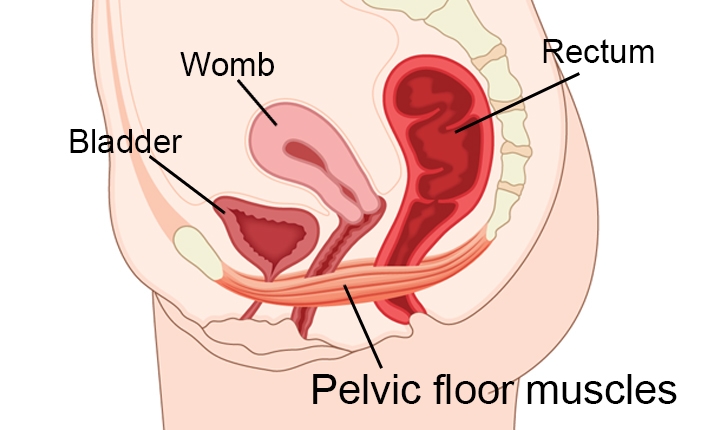Pelvic floor is formed by a sling of muscles stretching from front to back i.e. from tail bone to pubic bone. When standing these muscles form a supporting floor that protects and supports important organs like urinary bladder, bowel and womb. This floor also does an important contribution during sexual intercourse too.
Whenever we pass urine, stools or gas, the pelvic floor muscles contract and prevent any uncontrolled passage of any of the above. Similarly whenever one stresses such as during sneezing or coughing, it will prevent unwanted uncontrolled leakage of urine and any embarrassment to oneself.
Changes and consequences in pregnancy
Pelvic floor relaxes during pregnancy, partially due to lack of exercises and due to pressure effect of growing child. Similarly during a vaginal delivery, the process of child birth stretches out the pelvic floor.
As the pelvic floor is stretched and weakened, post-partum female commonly complaint of leakage of urine during activity especially running, coughing and sneezing. There might be urgent and sudden need to pass urine.
The good news is that like any other muscle, these muscles too can be strengthened with simple exercises. There is need to be aware of the importance of these muscles and start with exercises immediately after birth.
How to exercise the pelvic floor
One should sit, stand or lie comfortable with knees slightly apart.
Now practice to stop passing gas and urine at the same time, slowly squeeze the pelvic muscles and lift them up.
Do not pull in your stomach or tighten your buttocks to achieve this. Let only the pelvic floor muscles work. Make sure to breath normally, that is not to hold on to your breath.
As you learn the right technique, practice to increase duration of each contraction and also the number of times you are able to repeat with same force. Also try to practice rapid contraction and release of the floor, to help in event of a sneeze or cough.


